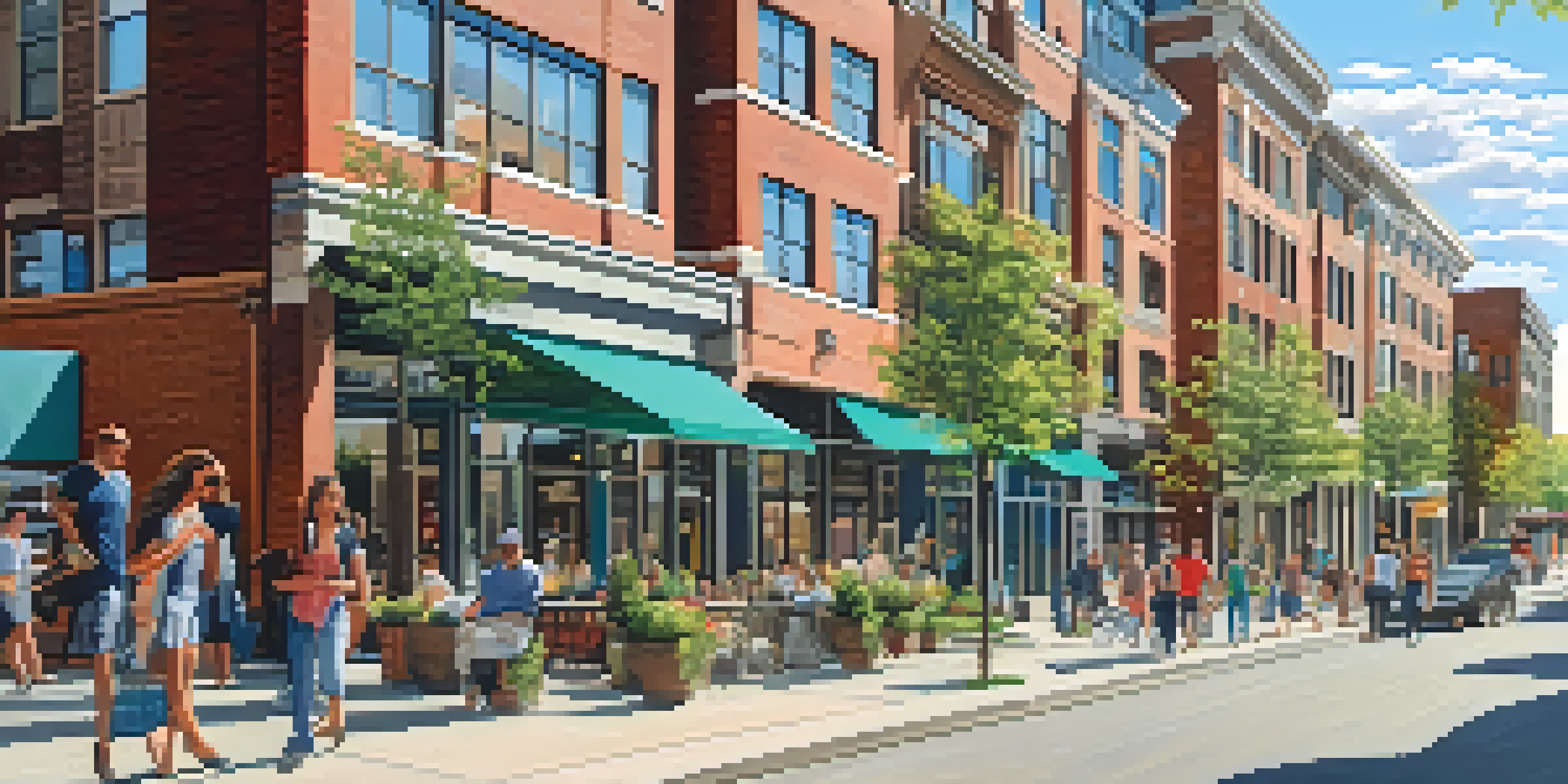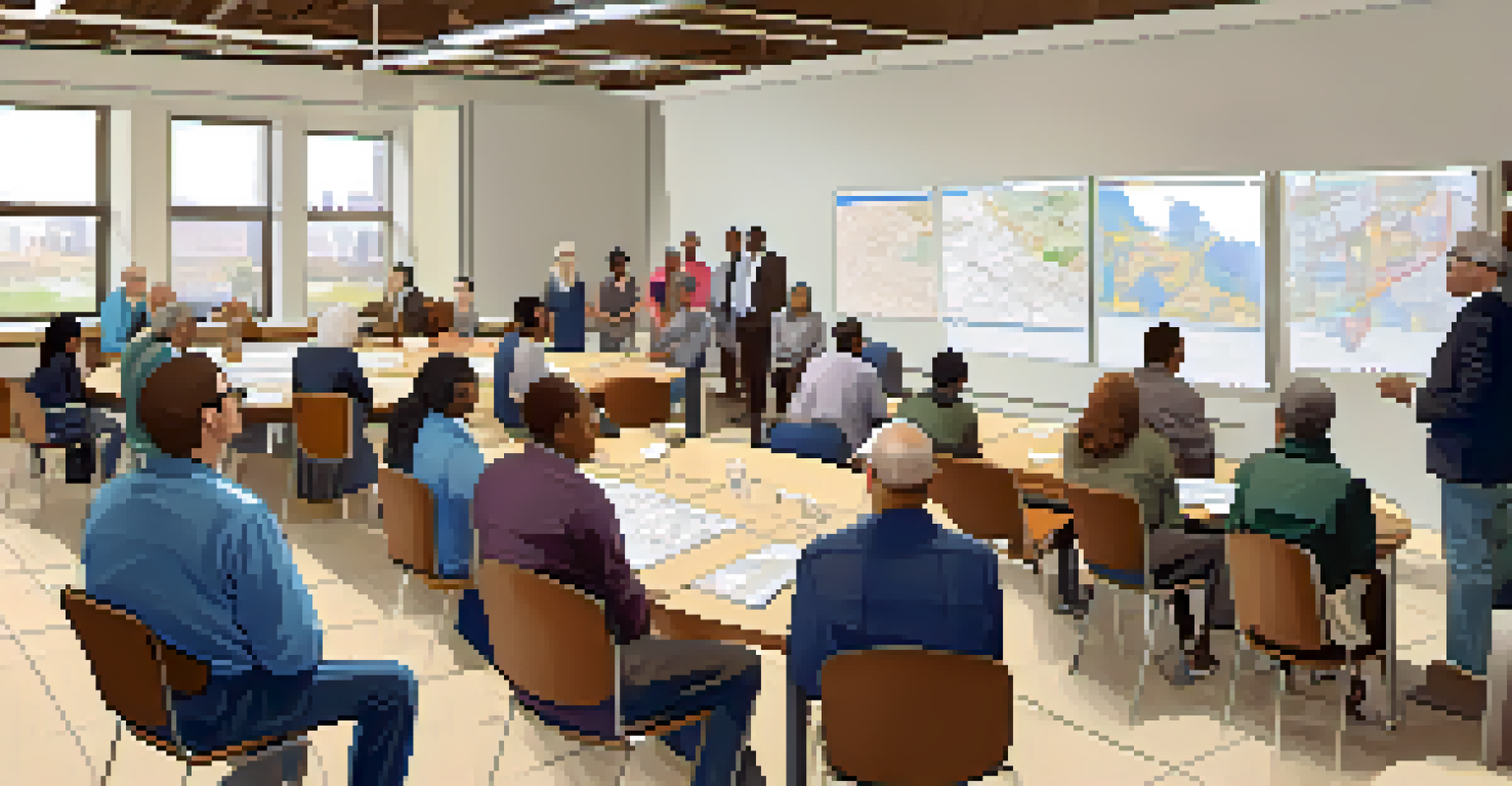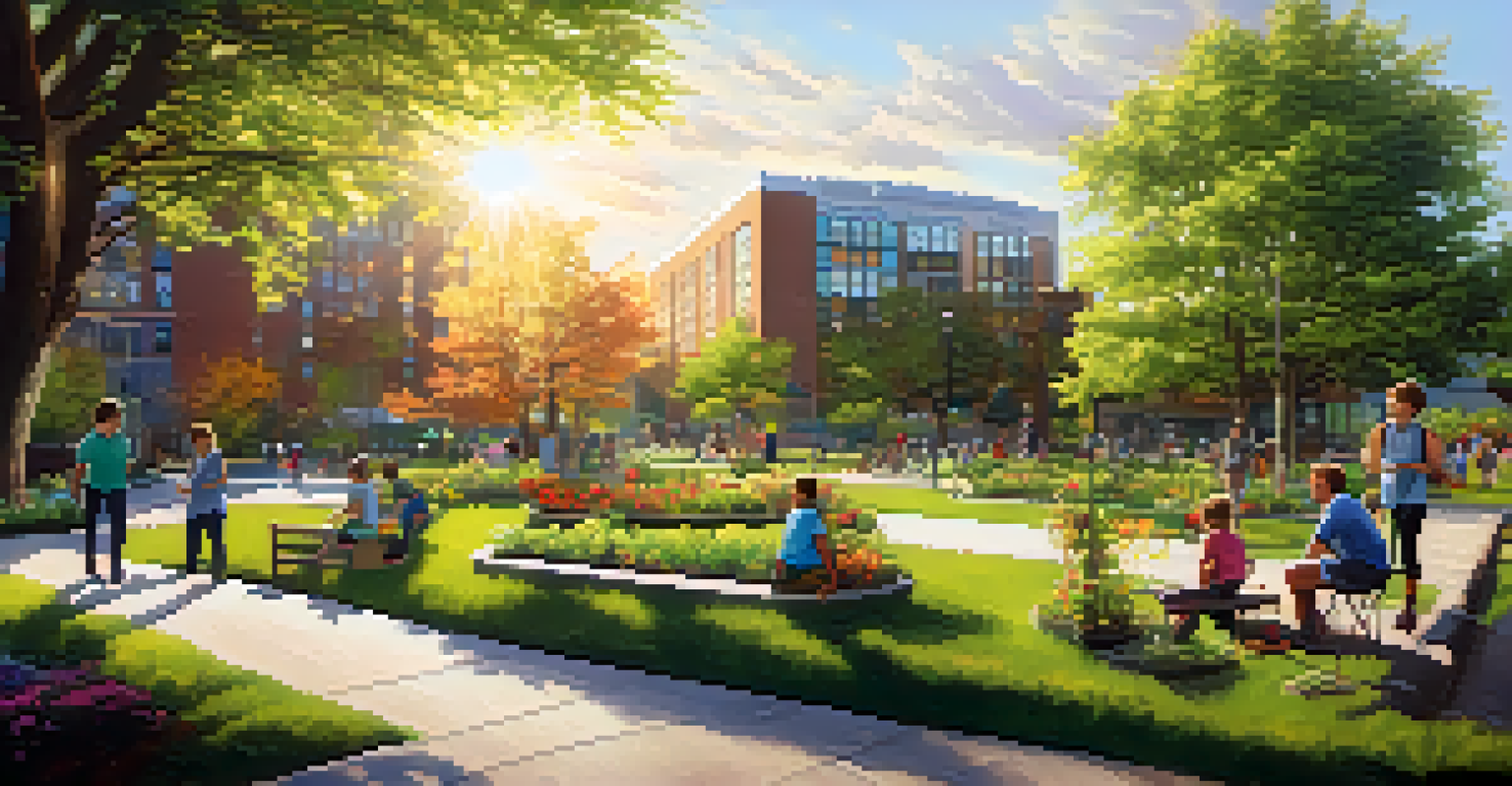Buffalo's Zoning Laws: Impacts on Development and Planning

Understanding Buffalo's Zoning Laws and Their Purpose
Zoning laws are regulations that dictate how land can be used in a city. In Buffalo, these laws play a crucial role in shaping the urban landscape, ensuring that residential, commercial, and industrial areas are properly organized. By establishing specific zones, the city aims to balance growth with community needs, promoting a harmonious environment for residents and businesses alike.
Zoning laws are a reflection of our values; they shape the community in which we live and work.
For instance, residential zones typically restrict the types of buildings that can be constructed, which helps maintain the character of neighborhoods. On the other hand, commercial zones encourage economic development by designating areas for businesses. This zoning system not only enhances property values but also fosters a sense of community by preventing incompatible land uses from clashing.
However, understanding these laws can sometimes feel overwhelming for property owners and developers. It's essential to stay informed about the regulations that affect your area, as they can significantly influence property rights and development possibilities. Engaging with local planning resources can help demystify these laws and empower stakeholders to make informed decisions.
The Evolution of Zoning Laws in Buffalo
Zoning laws in Buffalo have evolved significantly over the years, reflecting changes in urban planning philosophies and community priorities. Originally designed in the early 20th century, these regulations were primarily focused on separating different land uses to promote public health and safety. However, as the city grew, the need for a more flexible approach became apparent.

In recent years, Buffalo has embraced mixed-use developments that combine residential, commercial, and recreational spaces. This shift encourages walkable neighborhoods and reduces reliance on automobiles, aligning with modern urban planning trends. The city's zoning updates aim to promote sustainability and enhance the quality of life for its residents.
Zoning Laws Shape Urban Growth
Buffalo's zoning laws regulate land use to balance community needs and promote sustainable development.
Furthermore, ongoing community engagement has been pivotal in shaping these zoning reforms. Local residents and stakeholders now have a voice in the decision-making process, helping to ensure that the laws reflect the needs and desires of the community. This collaborative approach has fostered a sense of ownership and pride among Buffalo's citizens.
Zoning Laws and Economic Development in Buffalo
Economic development in Buffalo is closely tied to its zoning laws, which can either facilitate or hinder growth opportunities. By designating specific zones for commercial and industrial activities, the city creates a framework that attracts businesses and investments. This zoning strategy is crucial for stimulating job creation and enhancing the local economy.
Good zoning is the key to a balanced community, providing the framework for economic growth while respecting the needs of residents.
For example, the revitalization of certain districts has been supported by zoning changes that encourage new businesses to set up shop. These developments not only generate tax revenue but also enhance the overall vibrancy of neighborhoods. As businesses flourish, they create a ripple effect, benefiting surrounding areas and contributing to a thriving urban ecosystem.
However, balancing economic growth with community welfare remains a challenge. While zoning can promote development, it must also consider the potential impacts on existing residents. Thoughtful planning and community input are essential to ensure that economic initiatives align with the broader goals of sustainability and quality of life.
Challenges Faced by Developers in Buffalo
Developers in Buffalo often encounter various challenges when navigating the city's zoning laws. One significant hurdle is the complexity of the regulations, which can vary greatly from one area to another. Understanding these nuances is vital for developers to avoid costly mistakes and ensure compliance with local codes.
Additionally, community opposition can pose another barrier to development projects. Residents may be concerned about how new developments will affect their neighborhoods, leading to pushback during the approval process. This dynamic underscores the importance of transparency and communication between developers and the community.
Community Input Drives Zoning Changes
Local residents play a crucial role in shaping zoning decisions, ensuring developments reflect community values.
To overcome these challenges, developers can benefit from engaging with the city's planning department early in the process. By seeking guidance and establishing open lines of communication with local stakeholders, developers can build positive relationships and foster an environment of collaboration, ultimately leading to successful projects.
The Role of Community Input in Zoning Decisions
Community input plays a vital role in shaping Buffalo's zoning decisions. Local residents are often the best advocates for their neighborhoods, providing insights that can inform planning and zoning changes. This input not only enhances the decision-making process but also ensures that developments align with community values and needs.
Public hearings and community forums are common platforms for residents to express their opinions on proposed zoning changes. These gatherings offer opportunities for dialogue between city officials, developers, and citizens, fostering a collaborative atmosphere. When community members feel heard, it can lead to more tailored solutions that benefit everyone involved.
Moreover, incorporating community feedback can help mitigate potential conflicts between developers and residents. By addressing concerns upfront and integrating local perspectives into planning, Buffalo can create harmonious developments that enhance the city’s character while meeting the needs of its inhabitants.
Sustainable Development and Zoning in Buffalo
Sustainable development is becoming increasingly important in Buffalo's zoning discussions. As the city faces challenges related to climate change and urban sprawl, zoning laws are being revised to promote environmentally friendly practices. This includes encouraging green building designs, energy-efficient developments, and the preservation of green spaces.
By implementing zoning regulations that prioritize sustainability, Buffalo aims to create a more resilient urban environment. Mixed-use developments, for instance, can reduce transportation emissions by encouraging residents to live closer to work, shops, and services. This holistic approach not only benefits the environment but also enhances the quality of life for residents.
Future Trends in Zoning Practices
Emerging trends like remote work and technology advancements are likely to influence Buffalo's zoning laws.
Furthermore, community gardens and parks are often integrated into zoning plans, providing essential green spaces for recreation and relaxation. As Buffalo continues to evolve, these sustainable practices will be crucial in shaping a livable city that meets the needs of its current and future residents.
Future Trends in Buffalo's Zoning Laws
Looking ahead, several trends are likely to shape the future of zoning laws in Buffalo. The rise of remote work has changed how people view urban living, leading to increased demand for flexible spaces that accommodate both residential and commercial needs. Zoning regulations may need to adapt to reflect this shift, allowing for more mixed-use developments.
Additionally, the emphasis on equity and inclusion is becoming more prominent in zoning discussions. Ensuring that all community members have access to affordable housing and public resources will be a critical focus for future zoning updates. This approach fosters a sense of belonging and improves the overall well-being of the community.

Finally, advancements in technology will likely influence zoning practices. Tools like Geographic Information Systems (GIS) can provide valuable data to inform zoning decisions and streamline the planning process. By embracing these innovations, Buffalo can enhance its zoning framework, making it more responsive to the evolving needs of its residents.